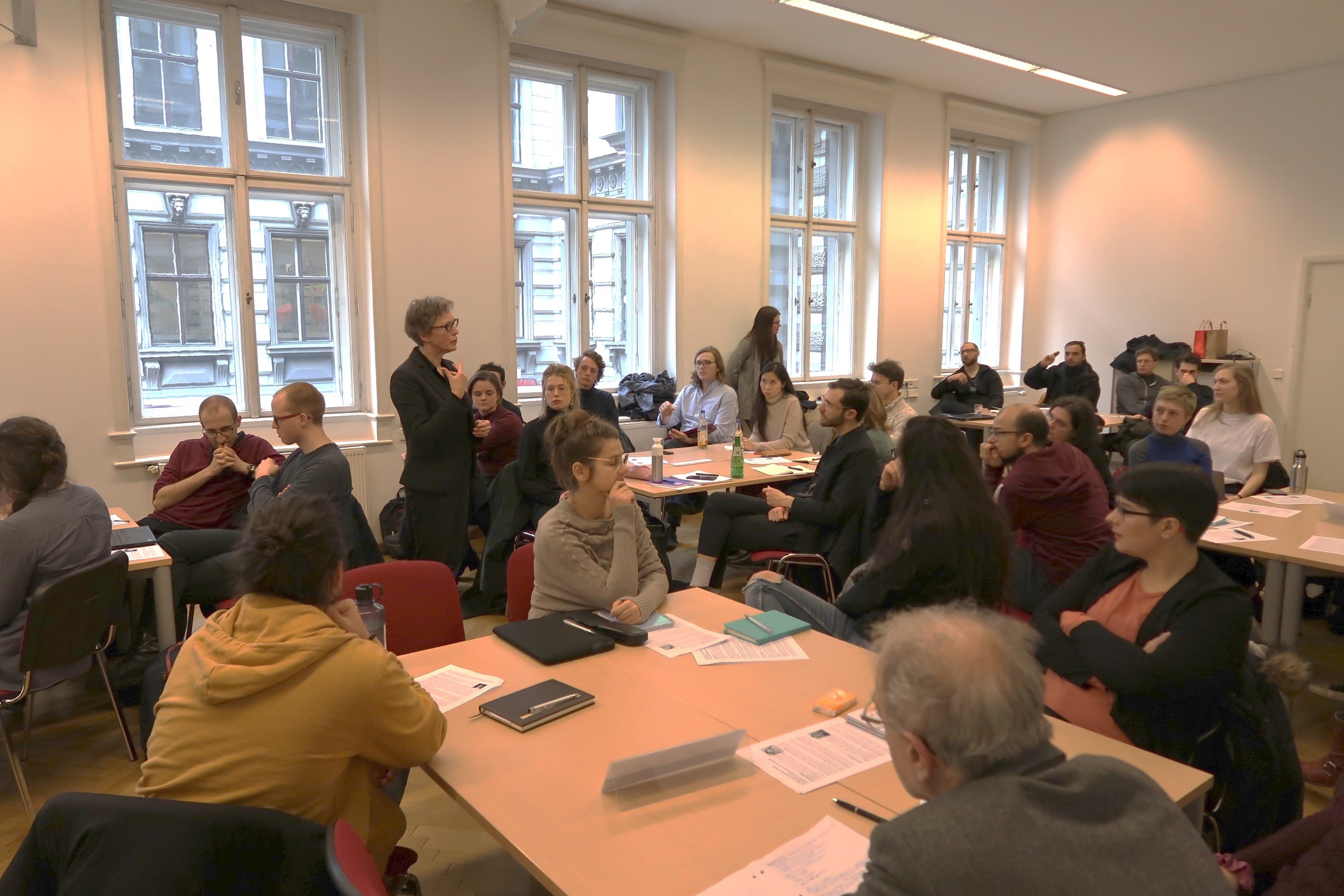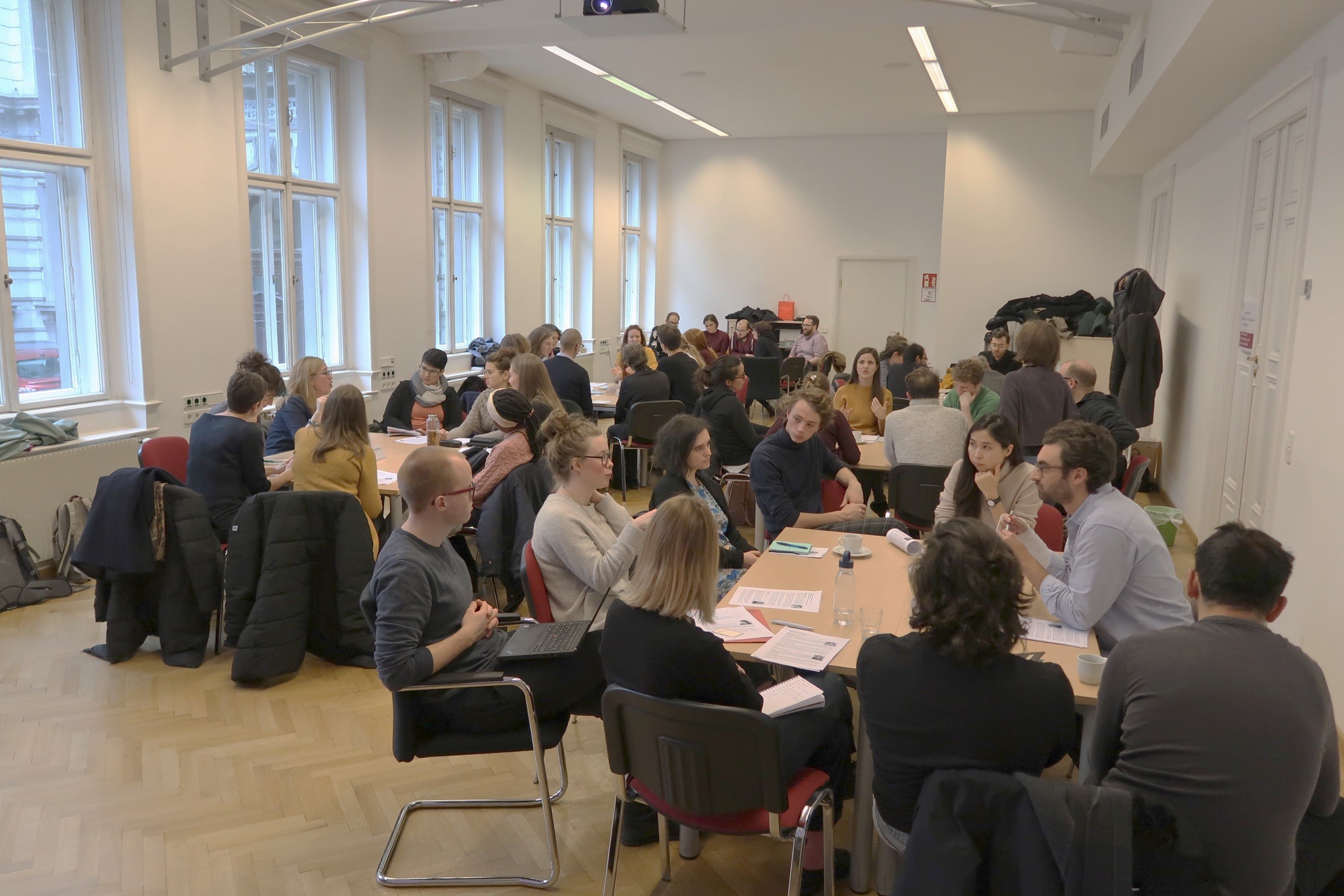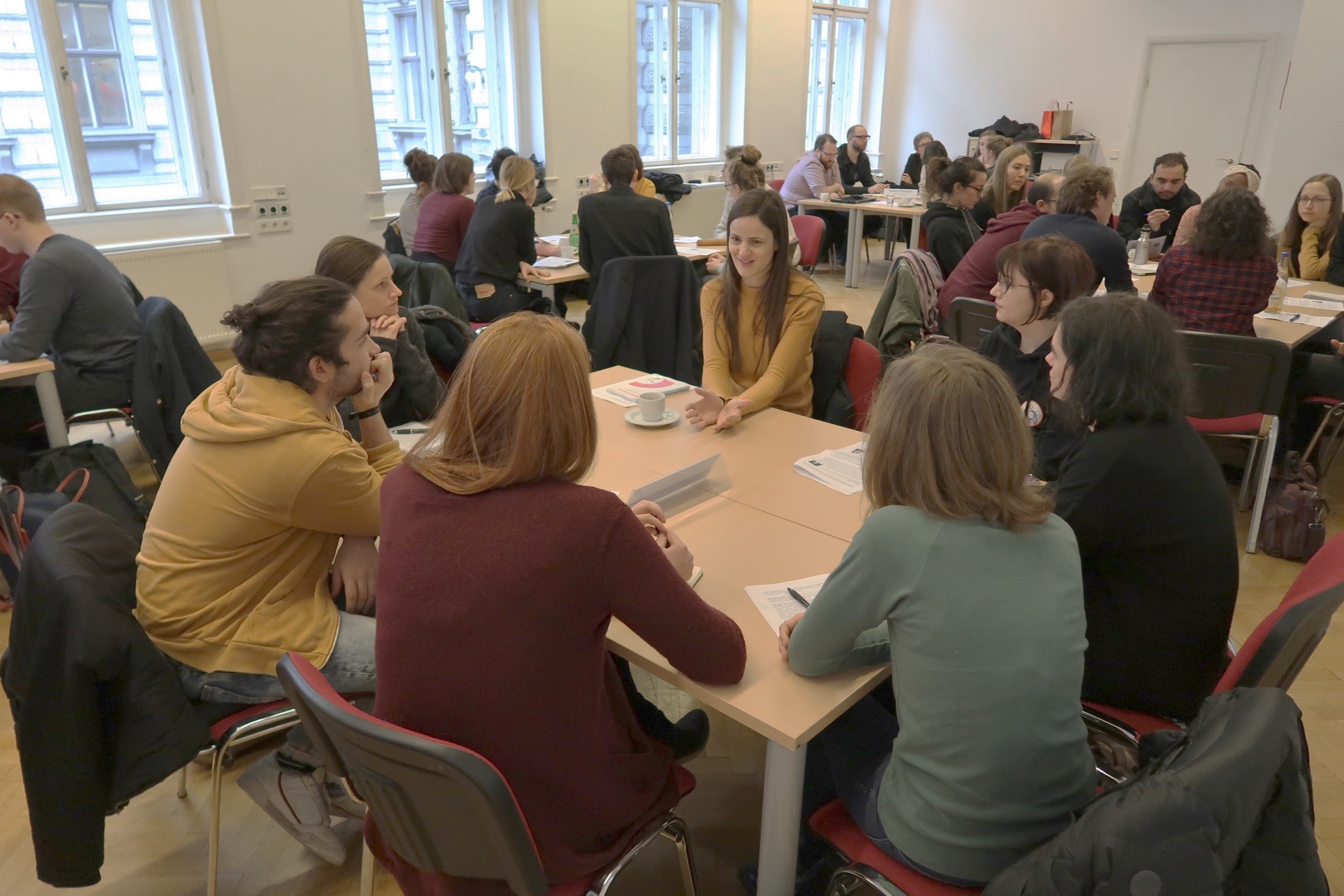By Florentine Frantz
When you study medicine, you become a doctor. When you study law, you become a lawyer. But when you study STS, what do you become? The answer to that question is not straight forward, but it is a pressing one, for current and future STS students. Therefore, my colleagues from the STS Austria Council, Max Fochler and Helene Sorgner, Martina Merz, and I decided to organize a workshop titled “Skills, Career Trajectories and Stories”*. Many students from both Austrian STS Master programs (University of Vienna and University of Klagenfurt) as well as a handful of PhD students attended our event in early December. In this blog-post, I want to share my reflections on the event.

Skills – “You might not be aware of what you know”
You might not be aware of what you know – was one of the major takeaways from Jessica Mesman’s keynote speech. She repeatedly highlighted that STS people are often not aware of their own skills. Still, knowing what you know may be critical when thinking about careers. Many of the skills we acquire throughout our studies are seemingly invisible and become tacit intellectual tools. However, they are valuable assets in many different working environments.
STS people think differently about reality. STS students, who might be attracted by the shining buzzwords of Science, Technology or Innovation, will soon learn that STS people have distinct and critical perspectives on them: Science is understood not as a value-free search for truth, but as a complex socio-technical assemblage, full of practices, cultures and meanings. Moreover, science is never decoupled from society, but it is always embedded within specific contexts and co-produced with them. Technologies are in STS not understood as passive artefacts, but as active and political non-human actors. Innovation is never just technological innovation but always social innovation too, in how it is collectively imagined and in how it changes society. We often think about the same concepts as other people, but we think differently about them. We approach them with an intellectual sensibility that aims to recognize tacit assumptions, values or political and social dimensions.
This particular perspective on reality also is mirrored in how STS people approach problems. On the one hand, they are problem analysts, who don’t start with quick fixes. They open problems up trying to understand the underlying complexities and entanglements between actors before they propose solutions. On the other hand, STS people engage in counter-intuitive reasoning, in how they open black boxes and think outside boxes. Jessica, for instance, works with the notion of exnovation instead of innovation. Thus, she thinks about what we can learn from what is already there to improve, rather than fostering innovation, where new things are deemed necessary to improve a situation.
In our increasingly complex technoscientific worlds, it is often not enough to look at challenges only from one angle. That’s why STS education covers a wide range of disciplinary inputs, including sociology, philosophy, feminist studies, political science, anthropology, or the history and philosophy of science, which should give us the intellectual tools to grasp what’s going on in the situations we study.
But also, in who does STS, we see wide-ranging interdisciplinarity. While bringing the multidisciplinary perspectives together may be challenging in the first month of an STS Master’s program, it is definitely worth it. The capacity to look at things from different angles makes STS graduates not only good bridge builders in future jobs but also creates an attentiveness for how to deal with the intertwinedness and the complexity of the world, and to embrace a diversity of perspectives as desirable.
Moreover, we are often not aware of the advanced social and general skills we learn. We learn how to ask questions and strategies for answering them. We learn how to present and communicate our results and gain argumentative resources. We learn time and project management. Just because there is no “Soft-Skills” label attached to it, it does not mean that there are no soft-skills being trained.

Career Trajectories & Stories
Besides awareness of skills, it helps to have some ideas in mind of where people go and what people do when they do STS and get paid for it. Here, we can, of course, refer to wider job categories such as reflexive technology assessment, consulting, STI policy, science education, research funding agencies or journalism. Nonetheless, we thought it would be fascinating to have real people telling us about their STS career trajectories. Thus, we invited 6 STS alumni as “Living Books” to our workshop, who can tell us their stories of what and how they worked after having pursued an STS education.
None of our guests had foreseen their career-trajectories after having completed their studies. We heard about fortunate coincidences, of a back and forth between jobs or about prolonging jobs because too many new projects came up. Still, they all described how the skills they learned in STS are important in their everyday work. In particular, being sensitive to build-in assumptions and the capacity to get the bigger picture. Moreover, some of them reported how they developed their STS perspectives further throughout their occupational life. You probably haven’t mastered STS 100% once you get your Master’s degree. You learn rather how to look at the world, and the more you see, the more you can understand and question it
You will hardly find any STS jobs which are explicitly looking for graduates wearing the “Science, Technology, Society” label. But, looking into the required qualification of many jobs, you will most likely see that you are well trained for a variety of jobs carrying other labels. Still, it can sometimes, be challenging to illustrate your skills to your future employer and show what you are capable of doing or how you are capable of thinking. In particular, because googling “STS” in Austria might yield results about a famous Austropop band with the same name. However, it can be helpful to illustrate what STS does by providing your own empirical work in the form of theses, articles, blog-posts or seminar papers.

Also, not every STS course of studies, even within the same Master’s programme, is the same. At the University of Vienna, students are free to choose between different research specializations and thematic courses within them. It allows students to develop their individual interests regarding the manifold relationships between science, technology, and society further. This influences, of course, which topics we think more or less about. But, as Jessica reminded us STS people are trained as specialized generalists. We get specialized in how to look at the world, but we are not limited by where to look at. Hence, rest reassured, just because you write your thesis on one topic doesn’t mean you can never do anything else again.
Concluding, I want to stress, drawing on Jessica’s talk, that just because “We are always critical in STS. We are never just applauding”, we should not be overly critical when it comes to our own skillset. Even though there is no stereotypical career path as it is the case with many other lines of education, this does by no means mean that there are no jobs for STS graduates. We get trained a wide range of valuable skills, which we can apply in a myriad of ways, be it in working environments or in life more generally.
* At this point, I want to thank my co-organizers for being a dream-team organizing committee.
Florentine Frantz is a PhD student and researcher at the Research Platform Responsible Research and Innovation in Academic Practice, working in the project Borderlands of Good Scientific Practice. Her main research interests lie in studying the dynamics of contemporary academia as well as how and which socio-epistemic and institutional configurations matter for doing research, in particular doing ‘good’ research.